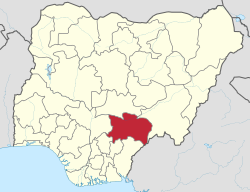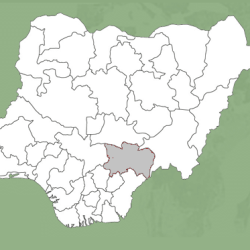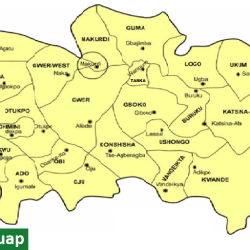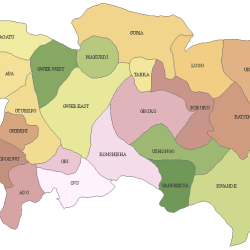Benue State, once known for its vibrant community journalism scene, has witnessed a steady decline in the quality, relevance, and impact of its local tabloids. These community newspapers, often referred to as “Local Papers,” once played a pivotal role in disseminating information, shaping public opinion, and holding the government accountable. However, the situation today starkly contrasts their former glory, with many factors contributing to their diminished status.
1. Historical Significance of Benue Community Journalism
At their peak, local tabloids in Benue State were much more than just newspapers. They were cultural artifacts and bastions of independent thought that catered to the specific needs of the local populace. With prominent figures like Prof. David Iornem of The New Times (TNT) and Chief John Akperashi of Newsmate leading the charge, these publications were symbols of intellectual and journalistic rigor.
Key achievements of Benue community journalism included:
- Influencing public opinion on governance and social issues.
- Providing a platform for intellectual debates.
- Encouraging grassroots participation in political and cultural discourse.
- Promoting a reading culture, even in rural areas.
2. Rise and Role of the Local Papers
The tabloids’ success lay in their relevance to local realities. Newspapers such as The Pavilion and Benue Weekend became household names, offering localized perspectives that the national dailies couldn’t provide. Newsstands were gathering hubs where readers of all ages exchanged ideas, fostering a culture of literacy and engagement.
3. Notable Personalities in Benue Journalism
The community tabloids gained credibility through the visionaries behind them:
- Prof. David Iornem (The New Times): Known for his intellectual leadership.
- Chief John Akperashi (Newsmate): A symbol of fearless reportage.
- Dr. Garshagu Atovigba (Daily Tigons): Championed incisive journalism.
- Chief Ode Enyi (The Spark): Stood out for cultural storytelling.
These names and others brought integrity and professionalism to local journalism, which resonated deeply with their audience.

4. Decline in Quality
Despite their strong foundation, Benue’s local papers have seen a drastic decline, characterized by:
- Deteriorating Editorial Standards: Inconsistencies in grammar, fact-checking, and investigative rigor.
- Loss of Independence: Political interference has compromised objectivity, turning many tabloids into tools for propaganda.
- Erosion of Professional Ethics: Reports often lack balance, with sensationalism overtaking substance.
5. Impact of Politics
The role of politics cannot be overstated in the decline of Benue community journalism:
- Political Influence: Politicians often pressure publishers to align with their interests, stifling independent thought.
- Economic Dependence: With dwindling advertising revenues, many tabloids rely on political sponsorship, leading to biased coverage.
- Polarization: Journalists who refuse to toe the line risk being labeled as enemies of the state, deterring genuine reporting.
6. The Role of Social Media
While the rise of social media has affected traditional journalism globally, its impact on Benue’s local papers is unique:
- Competition for Readership: Social media provides instant news, often reducing the relevance of print tabloids.
- Misinformation Challenges: Without robust editorial checks, some tabloids spread unverified information, further eroding trust.
- Opportunity for Revival: Ironically, social media could also be a platform for community journalism to regain its footing by adapting to new technologies.
7. The All-Comers Syndrome
A significant factor in the decline is the proliferation of unprofessional tabloids:
- Entry Barriers Lowered: Anyone with resources can publish a newspaper, regardless of their qualifications or intentions.
- Oversaturation of the Market: The influx of low-quality publications dilutes the impact of credible ones.
- Public Distrust: Readers grow skeptical of tabloids due to the prevalence of sensationalist and partisan reporting.
8. Case Study: The New Times (TNT)
Once a flagship of Benue journalism, TNT has also suffered from the decline:
- Reputation Undermined: Controversies such as the one surrounding Denen Achussah highlight lapses in professionalism.
- Loss of Vision: The paper no longer reflects the high standards set by Prof. Iornem, succumbing to the pressures of mediocrity and politicization.
9. The Role of Villages in Print Journalism
The rural populace, traditionally the backbone of local newspapers, still prefers print over digital news. Their loyalty, however, is waning due to:
- Diminished Quality: Substandard content fails to meet their expectations.
- Lack of Relevance: Urban-focused reporting alienates rural readers.
- Economic Challenges: Rising costs make newspapers less accessible.
10. Reviving Benue Community Journalism
To restore the glory of Benue’s community tabloids, concerted efforts are needed:
- Invest in Training: Equip journalists with modern skills and ethical training.
- Ensure Editorial Independence: Shield publications from political and financial pressures.
- Leverage Technology: Use social media and digital platforms to complement print editions.
- Reengage Rural Readers: Focus on issues that matter to the local populace.
11. The Legacy of Benue Journalism
Despite its decline, the legacy of Benue community journalism remains a source of pride. The lessons from its golden age can guide efforts to revive its relevance in a changing media landscape.
The decline of Benue community journalism is a multifaceted issue rooted in politics, economics, and societal changes. However, the foundations laid by pioneers such as Prof. Iornem and Chief Akperashi offer hope for a revival. By addressing the challenges and adapting to new realities, Benue’s local tabloids can once again become influential voices in the community.
Frequently Asked Questions (FAQs)
Q1: Why did Benue community journalism decline?
A1: The decline is attributed to political interference, loss of editorial standards, competition from social media, and the proliferation of low-quality publications.
Q2: What role did politics play in the decline?
A2: Politics undermined independence, with many tabloids succumbing to political pressures, turning into propaganda tools.
Q3: Can Benue community journalism be revived?
A3: Yes, by investing in training, maintaining editorial independence, and adapting to digital platforms.
Q4: How did social media impact Benue tabloids?
A4: Social media drew readers away from print tabloids but also offers opportunities for local journalism to innovate.
Q5: What was the significance of rural readers for Benue tabloids?
A5: Rural readers formed the core audience for local papers, valuing them for their relevance and tangible format.
Q6: Who were the key figures in Benue community journalism?
A6: Visionaries like Prof. David Iornem (TNT), Chief John Akperashi (Newsmate), and others set high standards for local journalism.


















